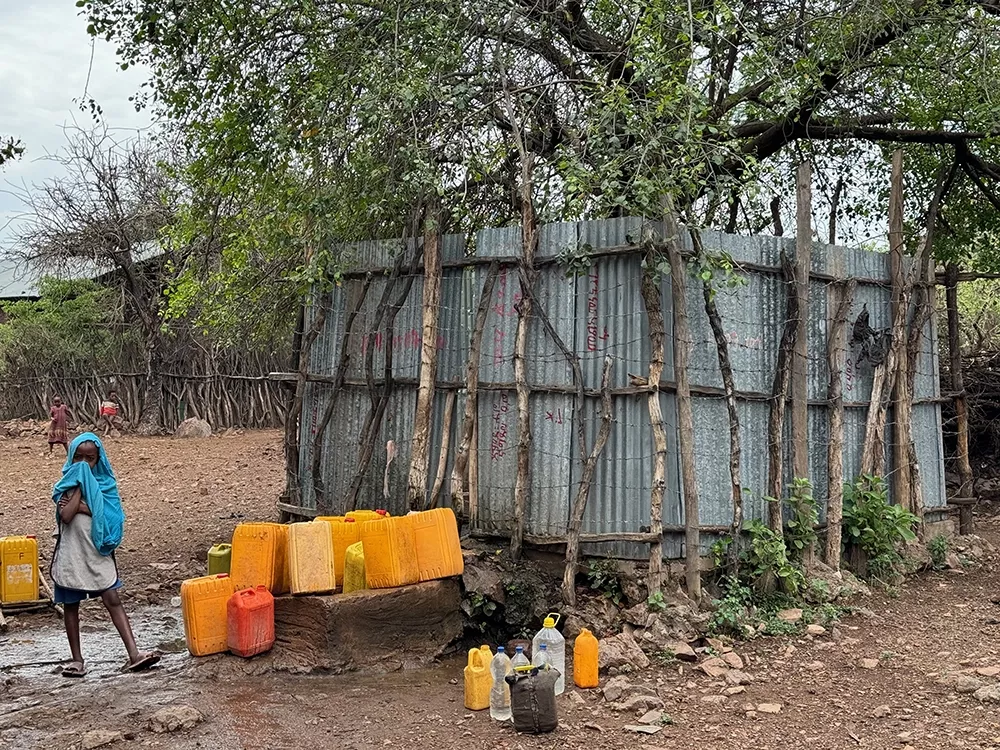Understanding Climate Mobility in Southern Ethiopia: Insights from the CEMENT Field Research

In southern Ethiopia, a region already grappling with socio-economic challenges, the added strain of frequent droughts affects the mobility of many young smallholder farmers towards urban centres in search of livelihoods as unskilled laborers. To delve deeper into this issue, a diverse team from SoGE TSU, Addis Ababa University, and Arba Minch University embarked on field research under the Climate Mobility, Onward Precarity and Urban Environment (CEMENT) project. Over the past three months, this interdisciplinary team has worked passionately to gather and analyse data on how climate change influences mobility strategies among farming families.
The research team, led by Dr Jin-ho Chung from SoGE TSU, included a robust mix of experts. Dr Thomas Torora Minda from Arba Minch University, along with Dphil students Girum Tesfaye Arega and Temesgen Chibssa Etana from Addis Ababa University, brought their expertise in meteorology and social anthropology to the field research. The team conducted their field research in southern Ethiopia between January and April 2024.
The team focused on three primary research questions:
- The extent to which drought influences family mobility decisions
- The decision-making processes within these families
- How rural-to-urban mobility affects the livelihoods of these families.
Their approach was to provide a nuanced understanding of climate mobility, recognising the complexities of voluntary and forced movements, which can be seasonal, circular, or short-distance, and often involve various stages of mobility and immobility.
Field research was conducted in the Sidama Region and Gamo Zone, specifically in the kebeles of Hanja Chafa, Lebu Koromo, Otolo, and Fetele Doronje. The team completed 56 interviews (32 men and 24 women) with smallholder farmers, local leaders, and government officials, shedding light on the hardships and mobility patterns shaped by climatic and socio-economic factors.
Preliminary key findings revealed that many young male smallholders, particularly those impacted by severe droughts in 2021 and 2022, moved to cities to take up temporary jobs like garbage collection and construction. Their decisions were influenced by factors such as land ownership and previous mobility experiences. Interestingly, the mobility of women in these families was significantly affected by their marital status.
With a wealth of qualitative data now gathered, the next phase for the team involves analysing these findings in Oxford in collaboration with Dr Thomas’s quantitative climate data. Additionally, the team plans to collaborate with IOM Ethiopia to refine intervention strategies that are effective and equitable. CEMENT not only aims to better understand the dynamics of climate mobility but also seeks to offer insights that can guide future policies, ensuring they address the real needs of vulnerable smallholder farmers affected by climate change.
The CEMENT project, and its extensive field research efforts, have been made possible through the support of the UKRI ESRC New Investigator Grant. Collaboration with local experts from Addis Ababa University and Arba Minch University has been crucial to our work. We are particularly grateful to Dr. Fekadu Adugna Tufa and Demeke Tsehay Dibekullu, who serve on the project’s advisory board in Ethiopia, for their invaluable support and guidance throughout the research process. Special thanks also to our lovely driver Terefe Tesfaye and field coordinator Jeong-hyun Cho.
For more information, please visit the project website: https://www.tsu.ox.ac.uk/research/cement/index.html
Dr Jin-ho Chung gives some insight into the field research for the Climate Mobility, Onward Precarity and Urban Environment (CEMENT) project. Over the past three months, this team has gathered and analysed data about how climate change influences mobility strategies among farming families in southern Ethiopia.

